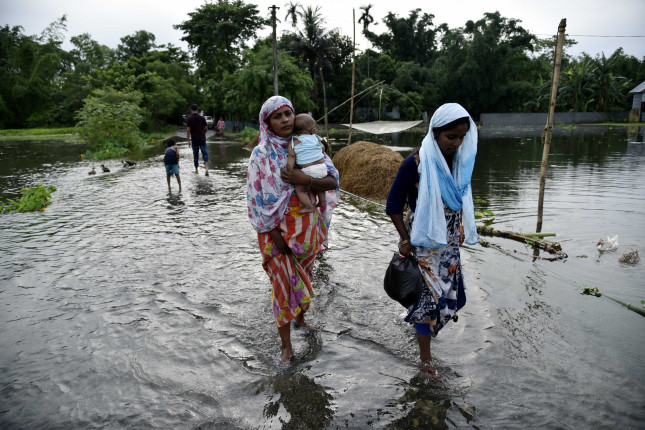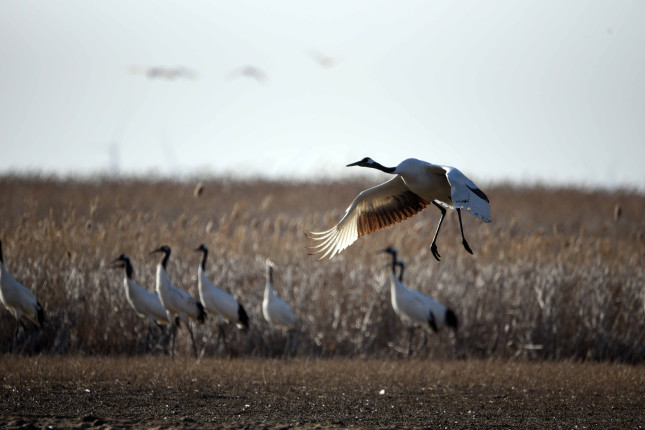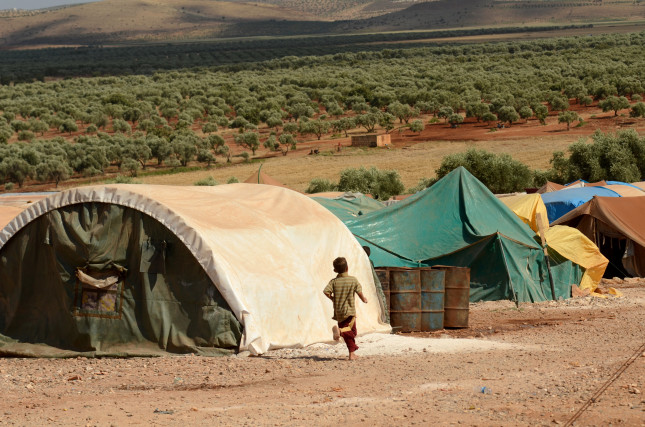-
Introducing “The Arc”
›
On today’s episode of New Security Broadcast, ECSP is launching a new series called The Arc, focused on the connections between climate change, equity, justice, and identity. We will cover a wide range of topics – from food and water systems to the energy transition, migration, and climate finance – and talk with practitioners, advocates, professors, and community leaders to discover where these topics intersect with issues related to climate impacts and justice.
-
New Global Health & Gender Policy Brief: Climate Change and Maternal and Newborn Health Outcomes
›
The growing climate crisis presents one of the largest public health threats of the century. However, its countless impacts on maternal and newborn health outcomes (as well as health disparities worldwide) have only recently gained global attention.
-
ECSP Weekly Watch | October 2 – 6
›
A window into what we are reading at the Wilson Center’s Environmental Change and Security Program
A Warming World is Accelerating the Spread of Dengue
Dengue is now endemic in most Latin American countries. But scientists warn that a warming climate is increasing the pace of breeding and transmission of dengue-carrying mosquitoes, and bring them into new countries.
-
Q&A: Peter Schwartzstein on Conflict & Climate in Libya
›
In the wake of Storm Daniel, which hit Libya in September 2023, ECSP spoke with Wilson Center Global Fellow Peter Schwartzstein about the storm’s tragic fallout and its connection to conflict. As an environmental journalist and consultant, Schwartzstein has written extensively about the climate-conflict nexus and other environmental and geopolitical issues, primarily in the Middle East, North and East Africa.
-
ECSP Weekly Watch | September 18 – 22
›
A window into what we are reading at the Wilson Center’s Environmental Change and Security Program
Converging Crises: Pakistan Flood Victims Face Rising Hunger
According to FAO, Pakistan ranks among the top-ten world producers of wheat, cotton, sugarcane, and mango—and it is the 10th largest producer of rice. But Pakistan is also atop another world ranking: vulnerability to the impacts of global warming.
-
Building Back China’s Great Wetland Wall: Q&A with Paulson Institute Wetland Team
›Known as “Earth’s kidneys,” wetlands provide a variety of ecological benefits: habitats for diverse species, flood containment, pollutant purification, and carbon absorption. But in China, wetland loss and degradation has exposed people to the whims of climate change. What has China done to protect its wetlands, and how should the country better adapt to climate change with wetlands—a “Great Wall” made of mudflats, mangroves, and waterbirds? Jianbin Shi and Xiaojing Gan, two China-based wetland experts from the Paulson Institute, may enlighten us.
-
ECSP Weekly Watch | September 11 – 15
›
A window into what we are reading at the Wilson Center’s Environmental Change and Security Program
Treading Water: Why Were Libya’s Floods So Devastating?
This week’s devastating disasters in Morocco and Libya underscore the cascading effects of environmental shocks (and in the case of Libya, climate-related shocks), as well as the cross-sectoral response needed to comprehensively address the damage.
-
Climate Adaptation at COP28: Eyes on the Middle East
›
When COP28 begins in the United Arab Emirates in late November of this year, the multifaceted connections between climate and conflict are expected to receive greater attention from participants than they have at previous conferences.
While there is scant direct causal evidence to suggest that climate change causes conflict, there is a growing body of information that it can influence the risk of conflict by hurting economies, changing broad patterns of human behavior and movement, and straining social cleavages.
Showing posts from category flooding.









